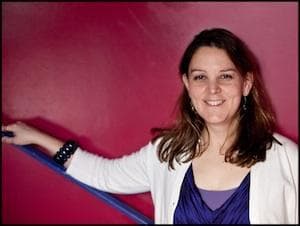Advertisement
Radio Boston on Autism: What Rock Do We Look Under?

If you enjoyed our superb guest blogger Karen Weintraub's post on the genes vs. environment divide in research on the causes of autism, don't miss today's Radio Boston segment, featuring Karen and Dr. Charles Nelson, professor of Pediatrics and Neuroscience at Harvard Medical School.
Karen sums up the study at the center of her post, which found that environment appears to play a bigger role in autism than previously thought. Radio Boston host Anthony Brooks asks Charles Nelson for his take on it, and he responds:
I think the study is very important for the reasons we just talked about, which is that it sheds light on some of the mechanisms that may lead to autism aside from genes.
[module align="right" width="half" type="pull-quote"]What rock do we look under in order to figure out what might be triggering this?[/module]
The problem is that the environment is a big place. In this paper they talk about a few possibilities: being born low birth weight and parental age. But there are many other things in the environment that we worry about. The problem is that we don't even know where to start. What rock do we look under in order to figure out what might be triggering this?
The way Karen described it is right on the money: We think of this as a disorder of genetic vulnerability, but the genes may not get expressed unless there are certain environmental conditions that must be met. the real question is: Why some children and not other children, why are some protected and others vulnerable, and what are the triggers for the disorder?
So, Anthony asks, what is to be done?
One approach might be to start with the "low-hanging fruit" among possible environmental factors, such as those mentioned in the paper — parental age or low birthweight, Charles Nelson replies. Other potential culprits are harder to study: hormones in the food supply, prenatal ultrasound, air pollution. Many things have been correlated with autism, he says, and there seem to be multiple causes. "Our job as scientists is to figure out which path is likely to be most fruitful."
This program aired on July 12, 2011. The audio for this program is not available.
